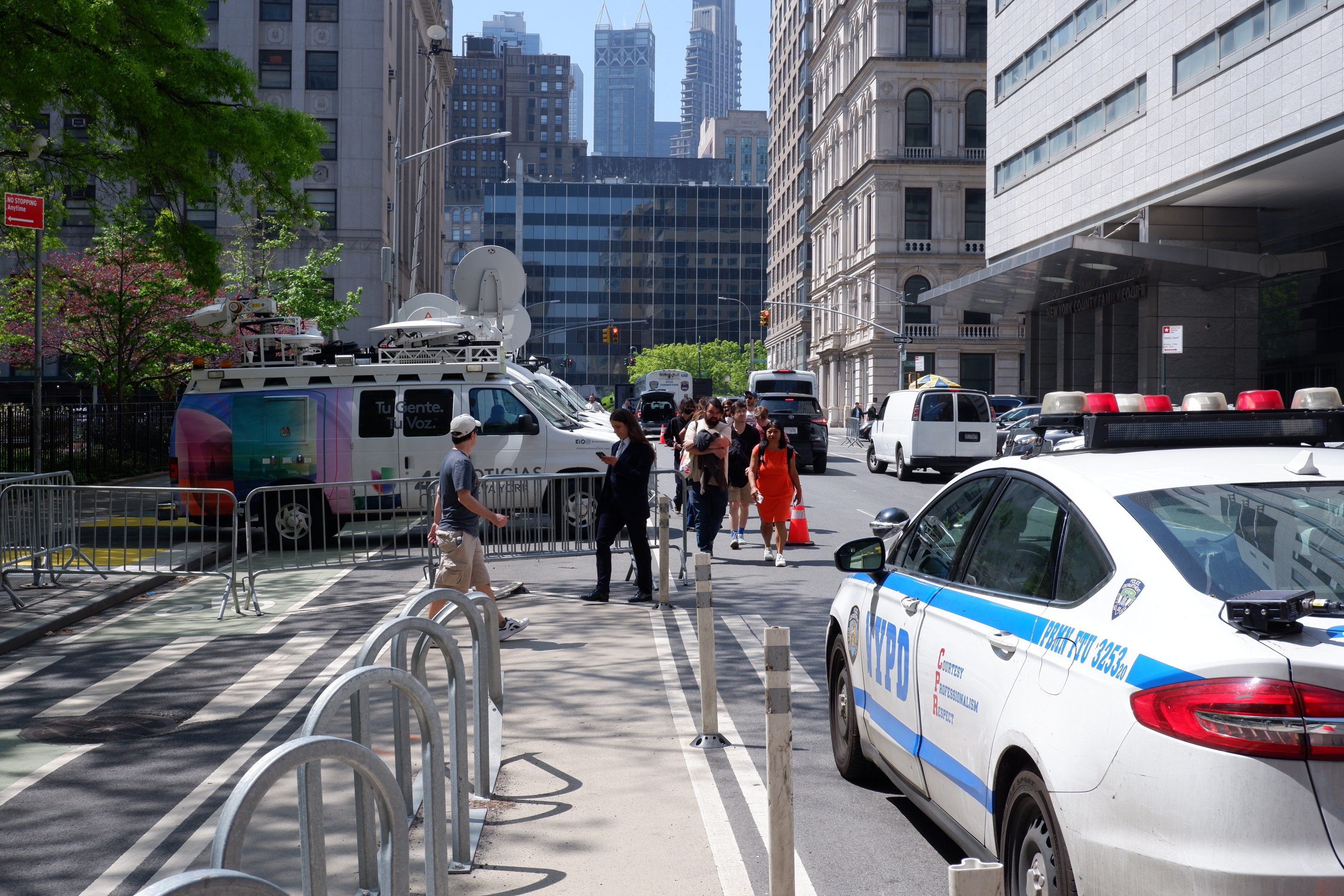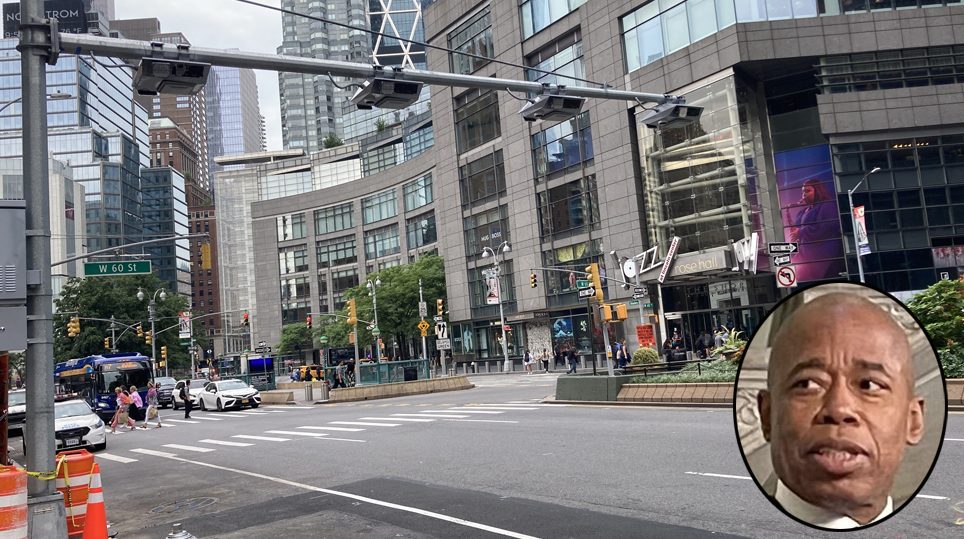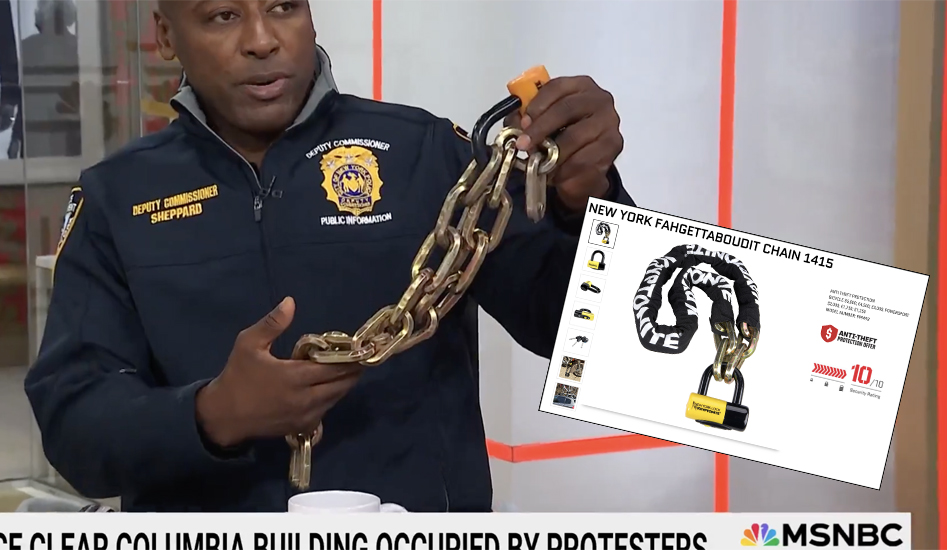For the second time (that we know of) in less than a week, a yellow cab driver has wreaked havoc on Manhattan streets, terrorizing pedestrians and leaving a trail of destruction.
Miraculously, unlike Akim Saiful Alam, the unidentified driver in yesterday's crash didn't kill anyone when he lost control of his cab on Amsterdam Avenue. But it wasn't for lack of trying. Witnesses told NY1 the cabbie was speeding before he attempted to "make a turn from the far right lane of Amsterdam and turned all the way into the far left lane." The News reports what happened next:
The cab careened off the roadway and nearly cleared a 4-foot-high wrought-iron fence separating a traffic island from the intersection.
"He hit the fence, and he went flying," said Samuel Valerdi, 34, of Brooklyn.
Then the taxi smashed into a small building that houses the entrance to the 1, 2 and 3 subway trains.
"It hit like a bomb," said newspaper vendor Mohameed Raza, 22, of Brooklyn.
Pedestrians ran for their lives, but "luckily no one was coming out of the subway at the time," said David Spiers, 44, a Bronx electrician working across the street.
All told, three people -- the driver, his passenger, and a pedestrian -- were injured. The News says NYPD is still investigating, though no summonses were immediately issued.
While this incident will soon drop off the radar (just as surely as it will soon happen again), not everyone will be quick to forget. After the jump, witness Lisa Sladkus questions why all of us, every day, should suffer the consequences of dangerous driving.
What will it take to make these streets safer? A low-stress afternoon interrupted by screeching tires, a loud crash, and the terrifying thought, "Where are my kids right now?" It shouldn't be like this. Today on Broadway between 71st and 72nd Street, a cab went straight through the wrought-iron fence and landed on the sidewalk right outside the subway entrance. My sister and I rushed out to see what seemed to be the cab driver with a bloody head and at least one pedestrian with a head injury. The sadder part was hearing the first police officer to the scene of the crash say, "It's shocking there weren't more injuries or deaths."
What's more shocking to me is that this is okay with the powers that be. Why is it okay to have a person walk out of the subway and get hit by some flying metal from a car crash? Why is it okay to have 53 pedestrians and four bicyclists die on the Upper West Side between 1995 and 2005 because of car crashes? Why can cars drive through red lights and nothing happens? Why is Amsterdam Avenue more like a bustling highway than a lovely city Boulevard?
This similar shock and sadness happened to me a few weeks ago while walking home with my three kids and loads of groceries. A woman riding her bike was hit by a car in front of the popular grocery store, Fairway. She didn't move for many minutes, and my kids kept asking, "Is she dead?" Once we determined that she, in fact, didn't die, my kids switched their questioning. The question that really got me was from my four year old, "You and Daddy bike. Are you going to get rolled up by a car too?"
All I can say is that we need a serious re-thinking of our neighborhoods. How do we want them to feel? Do we want kids to feel safe while walking and biking? Do we want peaceful streets where we can meet neighbors and frolic with our children? Do we want our valuable police force, fire department and EMT doing something more beneficial than spending hours dealing with the aftermath of a totally preventable crash? If so, we need to start by lowering speed limits, we need to re-design our streets and sidewalks to accommodate the masses of people instead of motor vehicles, we need safe places to bike and walk, we need trucks off our neighborhood side streets (and, frankly, completely out of our neighborhoods unless they are absolutely necessary), and on and on.
After the death of 8-year-old Axel Pablo last week, the Post called on Mayor Bloomberg, NYPD Commissioner Ray Kelly and TLC Commissioner Matthew Daus to crack down on cell phone-talking cab drivers. While this would be a welcome move, a more effective approach, for starters, would be an across the board no tolerance policy to speeding on city streets, coupled with prosecution of reckless motorists who maim and kill.
We know what it takes to "help us make safer streets and sidewalks," Sladkus concludes. "The question is: do we want that as our outcome?"





